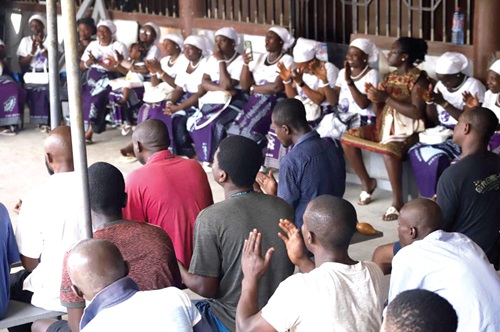The Narcotics Control Commission (NACOC) has raised concerns about the increasing trend of drug abuse initiated within educational institutions.
Encounters with individuals addicted to drugs have revealed that a significant number were introduced to substance abuse by peers during their school years.
NACOC identifies tertiary institutions, senior high schools, and in more alarming cases, junior high schools as the primary environments where students are first exposed to drugs.
The Ashanti Regional Director of NACOC, Samuel Yeboah, highlighted this issue during a donation event at the Frhab Ghana Charity Foundation rehabilitation centre in the Old Tafo Municipality. Although lacking statistical data, Mr Yeboah mentioned that insights from NACOC's periodic outreach programmes across nine rehabilitation centres in the region substantiate the claim.
In response to these findings, NACOC plans to intensify its outreach programmes in schools and proposes the formation of peer groups. These groups, being closer to the students, can identify early signs of drug abuse and report them to authorities for timely intervention and appropriate sanctions.
Personal testimonies
The gravity of the situation is echoed by testimonies from individuals at the Frhab rehabilitation centre.
Among them is a 52-year-old man who recounted being introduced to marijuana in Form One by a senior student. Misled by the promise that it would enhance his academic performance, he eventually dropped out, which ended his dream of becoming a lawyer.
Community Support
The donation, held in collaboration with the Susanna Wesley Mission Auxiliary (SUWMA) of the Calvary Methodist Church in Kumasi, also served as an advocacy platform.
The leader of the church’s women’s wing, Reverend Daniel Agyei-Fordjour, appealed to the public to support rather than stigmatise those struggling with drug abuse, stressing that support and encouragement were crucial for their rehabilitation.
The Chief Executive Officer of the Frhab rehabilitation centre, Francis Owusu-Ansah, pointed out the insufficiency of current facilities to accommodate the growing number of addicts seeking help.
Having secured a six-acre land at Dwumakwei near Juaben, Owusu-Ansah appealed for building materials to construct a 200-bed capacity home which would enable them to extend their services to more individuals in need.

